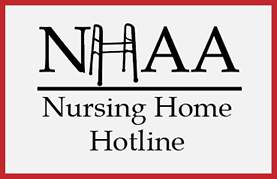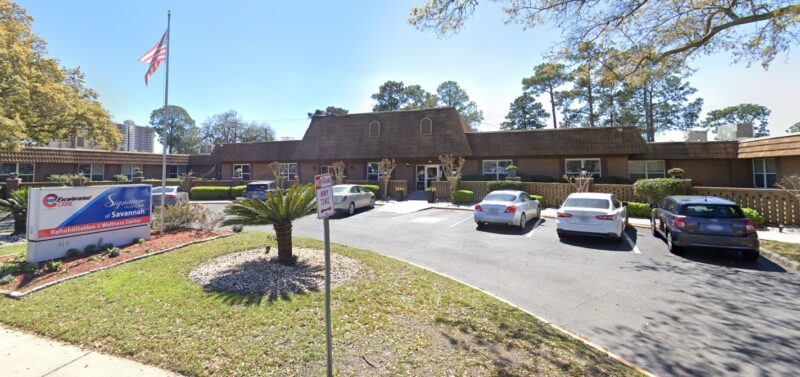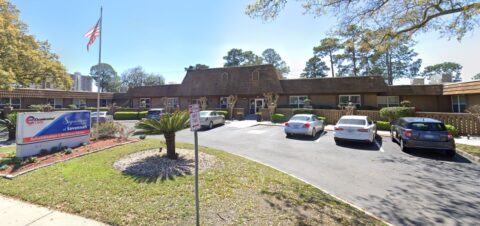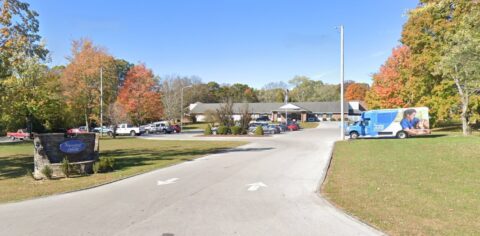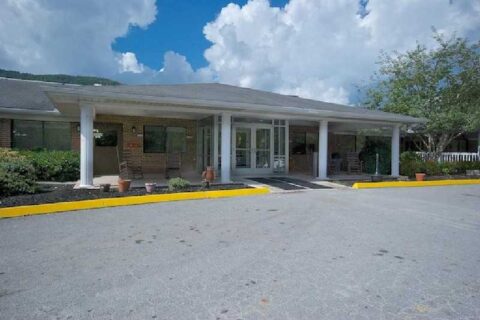State Findings:
The Department of Health & Human Services conducted an inspection of the facility. The following highlighted decencies listed below were found in a public survey.
Provide enough nursing staff every day to meet the needs of every resident; and have a licensed nurse in charge on each shift.
Based on staff interviews, a review of the Payroll-Based Journal (PBJ) Staffing Data Report, and a review of the facility document titled Facility Assessment Tool 2024, the facility failed to ensure adequate nursing staff for the first quarter of 2024. The deficient practice had the potential to adversely affect the care and services provided to the residents residing in the facility. The census was 109 residents.
Respond appropriately to all alleged violations.
Based on resident and staff interviews, record review, and a review of the facility’s policy titled Abuse,
Neglect, and Misappropriation of Property, the facility failed to ensure that abuse allegations, specifically an allegation of physical abuse and allegations of misappropriation of resident property, were thoroughly investigated for four residents (R) (R65, R41, R45, an R64) reviewed for abuse. These failures had the potential to negatively impact R65, R41, R45, and R64’s quality of life. The sample size was 54 residents.
Allow residents to self-administer drugs if determined clinically appropriate.
Based on observations, resident and staff interviews, record review, and review of the facility’s policy titled Self-Administration of Medications by Patients/Residents, the facility failed to ensure three of 54 sampled residents (R) (R30, R32, and R71) did not have unsecured and unauthorized medication or medicated treatment products at the bedside. This deficient practice had the potential to cause adverse effects for R30, R32, and R71 and allow unauthorized medication access to other residents and visitors.
Honor the resident’s right to organize and participate in resident/family groups in the facility
Based on resident and staff interviews, record review, and review of the facility’s policy titled Grievance Policy, the facility failed to thoroughly complete resident grievance forms to provide evidence that resident grievances were resolved in a timely manner and to ensure that residents were satisfied with the final resolutions for 42 of 101 resident grievance forms reviewed. This deficient practice had the potential to have an adverse effect on any resident who filed a grievance.
The resident has the right to receive notices in a format and a language he or she understands
Based on observations and staff interviews, the facility failed to post a complete listing of how to report abuse and the types of abuse, including a mailing address, email address, and information on how to report to the State Agency in a manner accessible to residents and visitors. The facility census was 109 residents.
Timely report suspected abuse, neglect, or theft and report the results of the investigation to proper authorities.
Based on resident and staff interviews, record review, and review of the facility’s policy titled Abuse, Neglect, and Misappropriation of Property, the facility failed to develop and implement policies and procedures for ensuring the reporting of a reasonable suspicion of a crime in accordance with section 1150B of the Act. Specifically, the facility failed to report the misappropriation of property to the State Survey Agency (SSA) for two of four residents (R) (R41 and R45) who were investigated for abuse. This failure had the potential to have a negative impact on the quality of life for R65 and R41.
Respond appropriately to all alleged violations.
Based on resident and staff interviews, record review, and a review of the facility’s policy titled Abuse, Neglect, and Misappropriation of Property, the facility failed to ensure that abuse allegations, specifically an allegation of physical abuse and allegations of misappropriation of resident property, were thoroughly investigated for four residents (R) (R65, R41, R45, an R64) reviewed for abuse. These failures had the potential to negatively impact R65, R41, R45, and R64’s quality of life.
Develop and implement a complete care plan that meets all the resident’s needs, with timetables and actions that can be measured.
Based on record review, staff interviews, and review of the facility’s policy titled Minimum Data Set
(MDS)/Care Plan, the facility failed to develop or implement a comprehensive, person-centered care plan for three of 54 sampled residents (R) (R11, R60, and R49). Specifically, the facility failed to develop a care plan for contracture management for R11, implement a care plan for oxygen therapy for R11, dialysis care and treatment for R60, and oxygen therapy for R49. The deficient practice had the potential to place R49, R11, and R60 at risk for medical complications, unmet needs, and a diminished quality of life.
Provide care and assistance to perform activities of daily living for any resident who is unable.
Based on resident and staff interviews, record review, and review of the facility’s policy titled
Bathing-Shower, the facility failed to provide assistance with activities of daily living (ADL), specifically baths or showers, for one resident (R) (R5) of 54 sampled residents. This failure placed R5 at risk for unmet needs and a diminished quality of life.
Provide appropriate treatment and care according to orders, resident’s preferences and goals.
Based on staff interviews and record review, the facility failed to transcribe an antibiotic medication order and administer it as ordered by the physician, resulting in a delay in treatment for one resident (R) (R49) of seven residents receiving antibiotics. This failure had the potential for R49 to not receive medical treatment according to their needs and placed R49 at risk for adverse consequences.
Provide appropriate care for a resident to maintain and/or improve range of motion (ROM), limited ROM and/or mobility, unless a decline is for a medical reason.
Based on observations, staff and resident interviews, record review, and a review of the facility’s policy titled Contracture Management, the facility failed to ensure one of 54 sampled residents (R) (R11) reviewed for limited range of motion (ROM) received passive range of motion (PROM) exercises and splint application as needed to address limited ROM in her right upper extremity. This failure created a potential for worsening contracture (fixed resistance to passive stretch), pain, or skin breakdown for R11.
Provide safe and appropriate respiratory care for a resident when needed.
Based on observations, staff interviews, record review, and review of the facility’s policies titled Oxygen Administration and Tracheostomy Care-Adults, the facility failed to provide respiratory care consistent with professional standards of practice for four of seven residents (R) (R11, R39, R22, and R49) receiving respiratory services. Specifically, the facility failed to ensure there was a current physician’s order for oxygen therapy and oxygen saturation checks before administering oxygen, to ensure the oxygen concentrator and concentrator filters were clean, and to provide humidification for oxygen therapy for R11. In addition, the facility failed to document daily tracheostomy inner cannula change for R39. Additionally, the facility failed to ensure the oxygen concentrator filter was clean and to clarify a physician’s order for oxygen for R22, failed to follow the physician’s orders for oxygen, to ensure the oxygen concentrator had a filter, and to label and
store respiratory equipment in a sanitary manner when not in use for R49. These deficient practices had the potential to cause respiratory distress or respiratory-associated infections for R11, R39, R22, and R49.
Provide safe, appropriate dialysis care/services for a resident who requires such services.
Based on staff interviews, record review, and review of the facility’s policy titled Dialysis Care, the facility failed to ensure ongoing communication and collaboration with the dialysis center for one of one resident (R) (R60) reviewed for dialysis services. This deficient practice had the potential to place R60 at risk for medical complications, unmet needs, and a diminished quality of life.
Ensure that nurses and nurse aides have the appropriate competencies to care for every resident in a way that maximizes each resident’s well being.
Based on staff interviews and a review of the facility document titled Certified Medication Aide Bi-Annual Checklist, the facility failed to ensure that services provided by Certified Medication Aides (CMA) met professional standards of quality. Specifically, the facility failed to provide evidence that three of four CMAs completed a Medication Administration Competency Skills Checklist for CMAs before being allowed to administer medications to residents. This deficient practice had the potential to result in adverse outcomes for residents related to medication administration. The census was 109 residents.
Procure food from sources approved or considered satisfactory and store, prepare, distribute and serve food in accordance with professional standards.
Based on observations, staff interviews, and review of the facility’s policies titled Equipment and
Environment, the facility failed to ensure that the kitchen walls, floors, and equipment were clean and free of rust, debris, and grease buildup and failed to use un-expired quaternary test strips in the three-compartment sink. The deficient practices had the potential to place all residents who received an oral diet from the kitchen at risk of contracting a foodborne illness. The census was 109 residents.
Dispose of garbage and refuse properly.
Based on observations, staff interviews, and a review of the facility’s policies titled Dispose of Garbage and Refuse and Environment, the facility failed to ensure the outdoor garbage and refuse area was free of litter and maintained in a sanitary manner for two of two dumpsters. The deficient practice had the potential to promote the harboring of pests, insects, and other organisms and create the potential for disease transmission by pests and rodents. The census was 109 residents.
Provide and implement an infection prevention and control program.
Based on observations, staff interviews, and review of the facility’s policies titled Infection Control and Prevention Policy and COVID-19 Employee and Resident Prevention and Control Practices, the facility failed to ensure infection control practices were followed to prevent transmission and spread of COVID-19. Specifically, the facility failed to ensure staff changed their masks when entering and exiting COVID-19 Transmission-Based Precaution (TBP) rooms and failed to ensure staff closed the doors of two COVID-19 TBP rooms during care. The facility was in an outbreak, with 31 residents and 11 staff tested positive for COVID-19. This deficient practice had the potential to spread COVID-19 to other residents, staff, and visitors. The census was 109 residents.
Implement a program that monitors antibiotic use.
Based on record review, staff interviews, and review of the facility’s policy titled Antibiotic Stewardship, the facility failed to provide evidence of a process for periodic review of antibiotic prescribing practices and failed to document follow-up measures in response to the data for 12 of 12 months of infection control data reviewed. This deficient practice had the potential to adversely affect any resident who was prescribed an antibiotic. The facility census was 109 residents.
Designate a qualified infection preventionist to be responsible for the infection prevent and control program in the nursing home.
Based on record review, staff interviews, and review of the facility document titled Healthcare Center Infection Preventionist, the facility failed to designate a qualified staff member to the role of Infection Control Preventionist (ICP) for two of the last 12 months and failed to ensure staff assigned to the role of ICP had enough time to perform the ICP responsibilities for six of the last 12 months. These deficient practices had the potential to create an ineffective Infection Prevention program that may contribute to the spread of infectious diseases among all residents in the facility. The census was 109 residents.
Your Experience Matters
...and we want to hear it.
NHAA is here to assist families, residents, and the community by sounding the alarm on issues like those found above. This nursing home and many others across the country are cited for abuse and neglect.
If you have or had a loved one living in this nursing home or any other nursing home where you suspect any form of abuse or neglect, contact us immediately.
We have helped many already and we can help you and your loved one as well by filing a state complaint, hiring a specialized nursing home attorney or helping you find a more suitable location for your loved one.
You can make a difference, even if your loved one has already passed away.
Please give us a call at 1-800-645-5262 or fill out our form detailing your experience.
Personal Note from NHA-Advocates
NHAA shares with all the families of loved ones who are confined to nursing homes the pain and anguish of putting them in the care of someone else. We expect our loved ones to be treated with dignity and honor in the homes we place them. We cannot emphasize enough to family members of nursing home residents; frequent visits are essential to our loved ones’ well-being and safety.
If you are struggling and upset, click here to understand your options, or contact us through our contact form or call our toll free hot line number: 1-800-645-5262.
